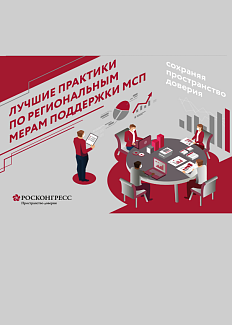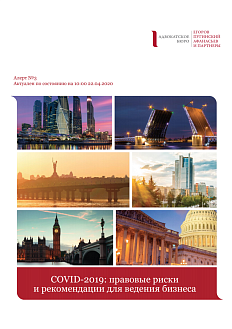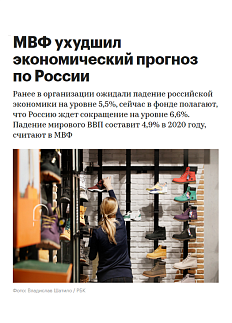Shortly before the conference ‘COVID-19: Accelerating a better energy future for all’, which is set to take place on 17 June as part of a series of online events under the brand of the 25th World Energy Congress, Rossetti CEO Pavel Livinsky talked about how digital transformation is helping us to overcome the effects of the pandemic and why the industry needs a new platform for exchanging experience.
COVID-19 has changed our world. The lockdowns are gradually being lifted, but this does not mean that we are returning to our former life. What until recently looked like something that could happen in the distant future has become our here and now, and decisions that seemed revolutionary must be taken in a short time.
Today, leading experts on the World Energy Council are trying to predict scenarios for the growth of the energy industry after the pandemic. Various such scenarios are being worked out based on information obtained from more than 60 countries. Over 220 international experts are involved in this dialogue, which attests to the desire of the energy community to work together. In my opinion, this is the most important thing.
In the unique situation in which we find ourselves today, it is extremely useful for the leadership of any company to get a cross section of the views of colleagues. This is akin to ‘Phone a Friend’, and it means we can find answers to difficult questions.
Rosseti is the operator of one of the largest electric grids in the world. We are open to collaboration with both Russian and foreign partners in various formats. For example, in April 2020, we initiated a working meeting via video conferencing with the heads of the State Grid Corporation of China, the Italian companies Enel and Terna, the Japanese TEPCO Power Grid and the South Korean KEPCO. We discussed not only the experience gained during the COVID-19 pandemic, but also exchanged views on a wide range of topics related to consumer liaison, introducing new practices into familiar business processes, incorporating modern technologies in the electric power industry, and developing additional services. The agenda also included a discussion on a joint, prompt response to emergency situations in the new conditions.
The meeting participants universally recognized that it is extremely important to see what practical steps taken by colleagues bring about the desired results, what barriers arise during the incorporation of innovative technologies, and what tools are employed to overcome any difficulties that arise. Through an open discussion we can replicate best practices and comprehensively assess risks. This was especially important when the situation with COVID-19 was deteriorating rapidly and the time for decision-making was very limited.
Our experience is of interest to our colleagues. The Rosseti group has demonstrated a high level of resistance to the stress factors that arose during the pandemic. By mid-March, 40% of our staff (about 90,000 people) were already working from home. We implemented special health and safety measures for employees who remained at work, including mass testing for COVID-19, with about 81,500 people already tested.
As a result of our focus in recent years on employing modern technologies, in less than a week we were able to completely debug all business processes for remote workers and ensure that they maintained efficiency at work. Despite all the restrictions, we continued to implement the repair programme and the critical part of the investment programme. On top of that, we were able to enhance the reliability of the power grid. For example, from 1 March, the number of blackouts in the 0.4-10 kV range was reduced by 3% year on year, with power outages down by 5%.
The entire situation related to COVID-19 has once again confirmed that we have no alternative but to accelerate the incorporation of new technologies in various sectors of the economy from retail to the power industry. Largely due to the fact that in recent years digitalization has become the absolute priority of the Rosseti Group, the Russian power grid has showed high resistance to the myriad challenges thrown up by the pandemic.
We have extensive practical experience in creating digital client services and building remote control systems for energy facilities, which we will be glad to share with our colleagues. On the other hand, we ourselves are interested in maintaining a dialogue and sharing knowledge with the aim of increasing the efficiency of energy transfer projects.
I proposed the participants of the discussion that we create a new collaborative platform in the form of an association so that we can maintain constant contact at the leadership level of the largest international energy companies, and the initiative was supported by my colleagues. I hope that the association will be created near future.
We live in an open world where mutually beneficial cooperation and increased confidence in global energy leaders are a major success factor. This involves not only exchanging experience, but also making a fair assessment of the results achieved. We have common goals, and they are the sustainable development of the industry, increasing the efficiency and safety of processes, and providing our customers with a reliable power supply. Together we can accelerate digital transformation and make a significant contribution to building the energy industry of the future. On top of this, an investment boom has already begun in the electric grid industry. In 2018 (according to the International Energy Agency), total investments in the electric grid industry were on par with investments in renewable energy sources, amounting to USD 300 billion.
High-quality international expertise can also play a key role in preparing industry proposals which our governments can benefit from when adopting decisions. The ability for countries to overcome the effects of the pandemic largely depends on how fast the authorities react and their readiness to employ the latest technologies in line with the current needs of consumers. I believe that companies that can ensure the stable operation of national energy systems can make a significant contribution to the global economic recovery.






